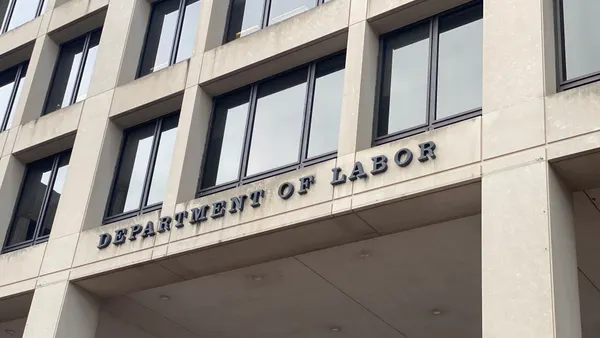Dive Brief:
- A study by VitalSmarts, a leadership training firm, found that 1-in-4 employees facing workplace discrimination experience stress, depression, frustration and helplessness. Researchers concluded that discrimination is permanent, unmanageable and pervasive for victims.
- The study, which polled 500 discrimination victims, showed that nearly half experienced bias regularly. Most respondents, 66%, said bias blocks their motivation, desire for advancement and job engagement and commitment. Moreover, 60% felt they couldn’t manage discriminatory incidents or prevent them from reoccurring.
- David Maxfield, VitalSmarts’ vice president of research, and Judith Honesty, CEO of Honesty Consulting, who jointly conducted the study by listening to discrimination victims’ stories, identified seven common "themes" in these stories. Honesty said their findings "reveal a trend of subtle—yet harmful—workplace discrimination."
Dive Insight:
The Equal Employment Opportunity Commission (EEOC) can attest to how persuasive discrimination is; the agency resolved 97,443 cases in 2016. It also collected $482 million in settlement fees and penalties on behalf of claimants.
Employees shouldn’t feel alone or helpless when facing discrimination. Employers can encourage them to come forth with legitimate complaints. HR should follow up by investigating allegations as soon as possible, talking with other employees who may have witnessed biased speech or behavior.
Employers should have anti-discrimination policies and vigorously enforce them. Additionally, all rules and procedures should be easily accessible via the employee handbook.
Besides protecting workers, policies help employers stay compliant with the law and lower their risk of being sued and having to pay out big fees and penalties. The Trump administration's focus on limiting regulations may lead to a more quiet EEOC, but that doesn't mean HR pros should lose sight of worker concerns.











